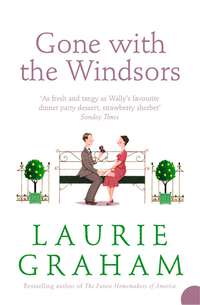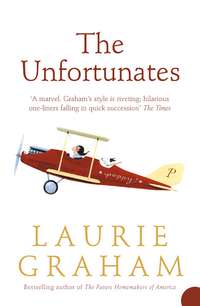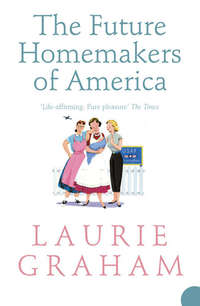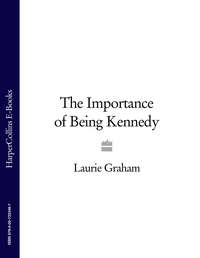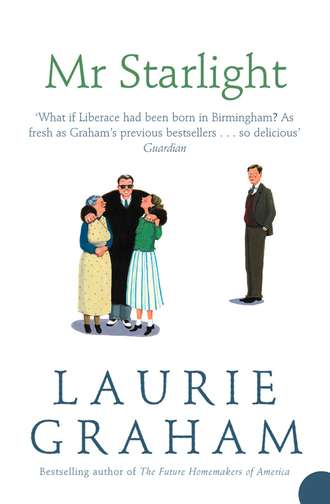
Полная версия
Mr Starlight
‘Not tonight,’ they said. ‘He’s too ill.’
That’s when it hit her. ‘Oh, Cledwyn,’ she sobbed. ‘Whatever can it be? Don’t let me lose him. I couldn’t bear to lose him.’
She wouldn’t come home, insisted on waiting there all night though there was nothing to be done.
I said, ‘Should I ask Dilys to come? She could wait with you.’
‘No,’ she said, ‘Dilys is neither use nor ornament at this time of night. She can’t manage without her sleep the way I can.’
I said, ‘Well, if I’m going to be up all night, I’d better phone Greely’s, tell them I shan’t be in tomorrow morning.’
‘Just go home,’ she said. ‘I don’t need anybody to sit with me. It’s a mother’s job to keep watch. And it’ll be me he asks for when he wakes up.’
So Jean and Dennis kindly drove me home and when I offered them something for their trouble and their petrol, Jean said, ‘You keep your hand in your pocket. We don’t want your money, do we, Dennis? Of course, what we’d really love is an autograph.’
‘Happy to oblige,’ I said. ‘Where’s your autograph book?’
‘Oh no,’ she said. ‘This wouldn’t be the right time. He’s a sick boy. But when he’s on the mend, if you think to mention it to him, a signed photo would be lovely.’
I expect she lived to regret not letting me sign her book, especially after I’d had my hit single.
Sel got worse before he got better. He was on the critical list for several days and Mam instructed us on what we were to say to the reporters.
Dilys said, ‘There aren’t any reporters, Mam.’
Mam said, ‘That’s because you keep using the front entrance. They’ll be round the back, thinking to catch you out. That’s what they did when Judy Garland was in hospital.’
Avril tried to visit too, just the once, but Mam soon saw her off. ‘Family only,’ she said. ‘Doctor’s orders.’
This wasn’t quite true because Uncle Teilo was buzzing around every day, looking for progress reports, wondering how many more bookings he’d have to cancel. Sel was unconscious for a whole day and when he came to we had a bit of a fright. ‘I’ve gone blind,’ he said. He was clinging to Mam. ‘I can’t see anything. I’m too young to go blind.’
Mam said, ‘Don’t worry, Selwyn, Mam’s here. Mam’ll send for a specialist. Cledwyn, tell your Uncle Teilo to get a specialist. Whatever it costs.’
But it was only blurred vision. Gradually it cleared, then his eyeballs turned yellow and his belly swelled up like a balloon, and he itched so much he scratched himself nearly raw. It had all been caused by his jacket, they said. He’d been poisoned by the stuff that had been used to clean it. Carbon tetrachloride. Mam said, ‘It was no such thing. It was DabAway. And I only freshened it up. What was I supposed to do? Leave the sweat to rot the seams? Costly fabric like that?’
They said Mam wasn’t to have known. It was in very tiny print about using the product in moderation and airing the garment thoroughly after it had been cleaned. They said four bottles was a lot, but she still shouldn’t blame herself. She said, ‘I’m not blaming myself.’ But I think she did, on the quiet.
At the end of the first week they asked me to step into the doctor’s office.
I said, ‘Are you sending him home?’
‘No,’ he said, ‘far from it. Your brother isn’t out of the woods yet. There could be kidney damage. We have to wait and see.’ I said, ‘How long?’
‘Two to three weeks,’ he said. ‘If there is damage … you might want to consider whether your mother should be warned.’
I said, ‘She’ll do whatever it takes. She’ll cash in a policy if it’s a case of going private.’
‘It isn’t,’ he said. ‘It’s a case of a possible sudden deterioration.’
Dilys was visiting when I looked in on him. She was trimming his hair and they were laughing and joking, no idea he might be on death row. ‘Cheer up, our kid,’ he said, when he saw me. ‘You look like you just saw a ghost. Come and sit down. I’ve got quite a story to tell the pair of you. I’ve had an amazing experience. A vision.’
Dilys said, ‘Well, you are on a lot of medication.’
‘Nothing to do with medication,’ he said. ‘A beautiful lady came to me, in the middle of the night. She was dressed in long white robes.’
I said, ‘It was probably that little staff nurse with the nice ankles.’ I had my eye on her myself, always crackling her apron, pretending to be busy.
‘No,’ he said. ‘It wasn’t any nurse. It was a visitation. She stood as near to me as you are and she was bathed in a heavenly glow.’
Dilys said, ‘You must have been dreaming. Had they given you a jab?’
‘No,’ he said. ‘I was as wide awake as I am now. Something made me sit up all of a sudden and there she was, smiling at me. But here’s the best bit: she knew all about me, all about my singing career and everything.’
I said, ‘Did she tell you Industrial Brush Social Club want to charge us for a no-show?’
‘Bugger Industrial Brush,’ he said. ‘This lady laid out my whole life before me. She said my days singing on the clubs are finished. She said I have a Higher Purpose.’
Dilys said, ‘What, like Dewi Elias?’ Dewi was one of Aunty Gwenny’s in-laws, worked as a roofer for years until he slipped and had a bang on the head. Then he went for a deacon. Reckoned he’d heard celestial voices.
‘Never mind Dewi Elias,’ he said. ‘I’m on the threshold of a momentous change in my life.’
It made my blood run cold to hear him making plans, after what I’d been told.
‘See?’ he said. ‘That’s why I was spared from DabAway poisoning. She told me I’m meant to go to America and there I shall make my fortune.’
Dilys said, ‘Could it have been the lady with the library trolley?’
I said, ‘Not in the middle of the night.’ I was hoping he had seen a vision, in a way. He was too young to die.
He said, ‘She was sent from above. I know she was. One minute she was here, clear as I see you, next minute she was gone.’
I said, ‘Did she glide away?’
‘Not so much glide as fade,’ he said.
Dilys said, ‘You haven’t told Mam?’
‘No,’ he said. ‘I didn’t think she’d like it.’
He was right about that. Mam didn’t even like Joan Wagstaff visiting, who had been one of his best pals in school, and she was a married woman.
I’ve often wondered if it was caused by the pills or if he made it all up, but he stuck to the same story all his days. Then again, Sel never saw any harm in being approximate with the facts.
I walked with Dilys to the bus stop.
She said, ‘Are you going to say anything to Mam?’
I said, ‘I think I might. If America’s on the agenda she ought to be warned.’
I was inclined to leave well alone with the other business. If Sel started to go downhill I could always get the doctor to explain things to her. No sense in running to meet trouble.
I said, ‘It could kill her.’
Dilys said, ‘What? Him going to America? I don’t think so. She’s made like a Sherman tank. As long as Sel’s in the limelight she’ll keep rolling.’
So I brought the matter up with Mam that same evening.
‘Visions!’ she said. ‘I’ll give them visions. They’ve been letting nuns in to bother helpless invalids. I shall make a complaint to the matron in the morning.’
Mam hated nuns. We were chapel. Well, we weren’t anything, really, but if we’d had to be something we’d have been Ebenezer Congregational.
‘Well, that settles it,’ she said. She’d got a right old cob on her and I hadn’t even got as far as the details of Sel’s Higher Purpose in America. ‘I’m getting him out of there,’ she said. ‘I’ll have him moved somewhere nice and quiet where he’s not troubled by intruders.’
And she did. As soon as he got the all clear on his kidneys he was on his way to a convalescent home in Abergele, thanks to the generosity of well-wishers from the Birmingham Welsh, and then on to Aunty Gwenny’s, for fresh air and home-made currant bread. It made no difference, though. He may have been sitting in the Land of our Fathers with a rug round his knees, but in his heart he was already on his way to America.
THREE
I was six when Sel came on the scene. I’ll never forget the day. We’d had team games that afternoon, out in the yard at Bright Street Infants because it was such a nice day and I’d been called out to the front to show the class good ball control. I was feeling very pleased with myself and then when I got to the corner of Ninevah Street I bumped into Mrs Edkins.
‘Cledwyn,’ she said. ‘You’ve got a new bab at your house so you’d better come to me for your tea tonight.’
I ran home so fast, to see if it was true about the bab and beg Mam not to send me to Mrs E’s. Normally my sister Dilys could have given me my tea. She was fourteen. Only she was on holiday at Aunty Gwenny’s, getting over tonsillitis. But when I ran in the door there she was, back from the country, and Mam was on the couch in her nightie and His Numps lay in a drawer out of the sideboard, all wrapped up in blankets and a woolly bonnet.
First thing I said was, ‘Can Dilys give me my tea? I’ll be good.’
Mam said, ‘Look at you, in a muck sweat. What have I told you about running? See what’s in the crib?’
‘Is it a bab?’ I said. I’d never really seen one close up. ‘Where did it come from?’
‘Under a gooseberry bush,’ Mam said. ‘Now go and wash your face and then you can give him a kiss.’
I said, ‘How long is he stopping?’ and Mam and Dilys both laughed. The main thing was, I didn’t have to go to the Edkinses for my tea, as long as I went about on tiptoe and didn’t wake the baby. I hated going next door. There was nothing to play with and Mrs E smelled of fried bread and sometimes she didn’t button up her blouse properly, so you could see things, unless you closed your eyes tight. Dilys wanted to name the bab Skippy, like in the cartoons, and I wanted him to be called Billy Walker, like the Aston Villa captain, but Mam said neither of those were proper names and he’d to be called Selwyn. Selwyn Amos, like I was Cledwyn Amos, after her brother Amos who’d died in the Battle of the Somme. Dad wasn’t around at that time so he didn’t get a say. Even in 1928 it could be hard finding the right kind of work. A man had to be willing to travel. By the time he turned up again the new bab had opened his eyes properly and was all signed up as Selwyn Amos. It was official. Dad didn’t seem to mind.
According to Mam, our dad had had a college education, though where he’d had it we never knew, and it didn’t appear to have done him much good because he was always getting laid off, or having a falling out that wasn’t his fault and being sent on his way. It was a good thing for us that Mam had a profession.
Mam met our dad when she came to Birmingham before the First World War. She’d been in Oswestry in service, and then she’d come to a big house in Edgbaston, to be a governess to somebody’s kiddies, teaching them their ABC and piano and manners. She was Anne Roberts, from Pentrefoelas, and she was quite the traveller of the Roberts family. Her sister Gwenny married Rhys Elias and never went any further than Denbigh.
Aunty Gwenny and Uncle Rhys had three sons, all named John because only the youngest one lived, and he did pretty well for himself. He ended up in Chester, in wholesale fruit and veg.
Dad’s people were the Boffs and they came from the Shrewsbury area. I don’t think we ever met any of them.
Aunty Gwenny didn’t approve of Dad. ‘You could have done better, Annie,’ she always said and she nicknamed him ‘Gypsy’, which stuck.
But I never heard Mam say a word against him. ‘Gwenny doesn’t understand,’ she’d say. ‘She’s not seen the world the way I have. Your father’s overqualified for the work that’s on offer around here.’ As to why we didn’t all move somewhere nearer to work that was up to his high level of aptitude, that was never gone into. Actually, it quite suited us, his not often being there. It was only a small house and he was a big man. And Mam kept cheerful enough. She had her piano pupils and there was always Uncle Teilo if she needed a new light bulb screwing in.
I’ve often wondered if our dad’s problem was drink. We were teetotal so we never had alcohol in the house, but money did seem to run through his fingers and he used to weep sometimes, too, which might have been brought on by the demon drink.
But Mam always stayed calm. ‘Go down to Sturdy’s,’ she’d say. ‘Mr Edkins says they’re setting men on. Go and ask at the gate.’ She’d give him the bus fare and a bit extra, to help him feel like a man, but she never let him see where she’d fetched it from. Mam had hiding places all over. In her shoe sometimes. In her brassiere. ‘And remember not to mention your college education,’ she’d say.
But he’d usually come back with a long face and a story. He was too old. Or the powers that be had it in for him. I question whether he even went to Sturdy’s gate and asked.
I liked having a bab in the family. After Sel arrived I didn’t get so much attention paid to me, which meant I could stay out in the street later, practising my ball control. And with Dilys helping in the kitchen I could get away with things Mam didn’t allow, like not eating my crusts. Then, just before Sel’s first Christmas, Dilys got a start as a jam tart packer at Oven Fresh, which meant Mam had all the housework to do again and I could get more time on the piano.
I loved my music. Mam had children sent to her for lessons who had to be threatened with the stick before they’d practise, but not me. And I caught on fast, too. Mam wasn’t a great one for dishing out praise but she did tell me once I had natural ability.
Sel was a wakeful type of baby and he only had to see me lift the lid of the piano to start smiling. That’s how I picture us then: him propped up in the corner of the couch, big and bonny, blowing bubbles and dribbling down his bib, and me playing him my little pieces, still too short to reach the pedals.
After he learned to walk he’d tag along behind me everywhere and on school mornings, when I had to go and leave him, he’d cry as though his heart was broken.
Mam’d say, ‘You’re too soft, Cledwyn. Just walk out of the door and don’t be so daft. Babies are meant to cry.’
I never really understood the wisdom of that.
So me and Sel were close from the beginning although, of course, as the years went by we had our ups and downs. By the time he started at Bright Street I was nearly ready to move on to the big school. I didn’t want him trailing behind me, expecting me to play with him like I did at home, but one thing about Sel, wherever he went people liked him. He made some little friends of his own that first week and that was how he carried on. He was no footballer and I don’t even remember him joining in a game of conkers, but he got along with the girls, like Vera Muddimer and Joan Wagstaff, skipping with a rope and playing Kings and Queens and getting up little concerts. He joined the Cub Scouts but he only went once. He said, ‘I’m not going back.’
And Mam said, ‘You don’t have to, darling, not if you don’t like it.’
I said, ‘You made me go. You said I had to persevere.’
‘Selwyn’s cut from a different cloth,’ she said. ‘He’s not tough, like you.’
So he was allowed to stay at home and develop what Mam called ‘the domestic arts’. Stitching an S on all his hankies. Rearranging Mam’s ornaments. Decorating biscuits. Dilys used to bring bags of mis-shapes home from Oven Fresh and he loved titivating them with coloured icing and silver balls. He could be quite artistic. I was already working at Greely’s by the time he passed for the Grammar School. I said to Mam, ‘I hope he’ll get on all right there.’
‘Why wouldn’t he?’ she said.
I was worried about him because the Grammar School was boys only. I said, ‘He’s going to miss Joan and Vera.’
‘Selwyn makes friends wherever he goes,’ she said. ‘And there’s time enough for girls later.’
And it was true, he did have the knack of playing the fool and winning folks over, even the ones who called him a sissy. It was as though he was daring the whole world not to like him.
When Dilys was eighteen she started walking out with Arthur Persons. Mam never let them out of her sight. They had to keep the door open while they said goodnight out on the front step, even if there was a gale blowing, and if she couldn’t be in the room supervising them, I had to keep watch.
‘Play your new piece for Arthur,’ Mam’d say, which meant she needed to go outside and pay a penny and I was supposed to guard our Dilys’s virtue.
Poor Arthur. He endured two years of that while they saved up for a bed and some easy chairs, and then they got married, in the spring of 1933. The wedding took place at Miller Street Congregational. Dilys wore a blue suit made for her by Mrs Grimley and Uncle Teilo walked her up the aisle, our dad having had to rush away to Gloucester to follow up a business opportunity. Me and Selwyn were attendants. I wasn’t keen but Dilys begged me. I was twelve years old by then and I’d seen some of the get-ups attendants were expected to wear. There were often weddings round the corner at St Botolph’s and I’d seen boys dressed in velveteen and lacy collars. But Mam said there’d be nothing like that, just a bath the night before and a nice clean shirt and tie, so I agreed. Sel had long white socks and new shoes, and he carried a lucky cardboard horseshoe to give to the happy couple as they came out of the chapel, and the reason I remember that is he was so pleased with his white socks he spent the whole time looking at them and worrying in case they got smudged. If you look at Dilys’s wedding photo all you can see of him is the top of his head because he’s busy gazing down at his legs.
Dilys and Arthur started off in one room at Arthur’s parents’ house in Tysely, and then they got a flat with shared kitchen and bathroom on the Pershore Road, and all the while Arthur was climbing the ladder at Aldridge’s Machine Tools and doing very well for himself. By the time Dilys was in the family way they were buying a house at Great Barr with a garden front and back, so much down and then so much per month.
Every so often Dad would turn up with a bag of laundry and holes in his socks, and I’d be sent to Jewks’s for a skein of darning wool. ‘And while you’re out,’ Mam’d whisper, ‘run round to Uncle Teilo’s and tell him your father’s home.’
It was one of Dad’s homecomings that led to a big falling out between Mam and Dilys.
‘Tell Arthur your father’s available for work,’ Mam said.
‘No need,’ Dilys said. ‘I expect they’ll be giving it out on the wireless. But Arthur can’t get him work.’
‘Of course he can,’ Mam said. ‘If he’s any kind of son-in-law. If he’s as high up at Aldridge’s as he cracks on.’
Dilys said, ‘If Arthur sullied his hands setting Dad on he soon wouldn’t be anything at Aldridge’s. I’m not asking him.’
Mam said, ‘Then I’ll get him a start. I’ll go to Aldridge’s myself and tell them who I am.’
‘Don’t you bloody dare,’ Dilys was shouting. ‘Don’t you bloody bloody dare.’ I could see her point of view. There were always complications where Dad was involved, complications and recriminations. It was just as well Dilys stood her ground because Arthur was too mild to have done it for himself.
Then Dad went off to the Labour Exchange one morning and didn’t come back. It was the usual pattern.
Mam said, ‘I expect he was offered something. He’d heard there might be an opening in the Potteries. That’s how it is. If an opportunity presents itself you have to jump in quick, before someone else does. You don’t have time for goodbyes.’ But I noticed his spare shirt was gone and so was my Brylcreem.
I went over to Dilys’s to tell her Gypsy was gone. I said, ‘So you and Mam can patch things up now.’
‘I don’t know,’ she said. ‘It’s quite a relief not having to see her.’
I said, ‘Sel misses you.’
‘Bring him over on the bus,’ she said. ‘I’d like that. And Mam doesn’t need to know.’
But however much Sel missed Dilys it wasn’t enough for him to go behind Mam’s back. ‘No,’ he said. ‘Mam’s the mam and Dilys is the girl, so what Mam says goes. And if you go to Dilys’s again, I’m telling.’
So we were incommunicado until Arthur came round one night and said Dilys had had two lovely baby girls and it was time to let bygones be bygones. And as it was Dad they’d quarrelled over and he himself was a bygone just then, Mam relented and we all went to see the new arrivals. They’d named them Betsan and Gaynor.
I was fifteen and Sel was nine, which seemed young to be uncles, but we were both pretty chuffed about it.
Dilys said, ‘Sit on those kitchen chairs, the pair of you, and each of you hold one of the babies.’
I was up for it, but Sel wouldn’t. ‘Their legs are too thin,’ he said. ‘And they’ve got funny skin.’
There were certain things he never liked to touch and there was no persuading him. He could be very funny that way.
‘Well, Dilys,’ Mam said. ‘Now you’ve got your work cut out.’
‘Don’t worry,’ Dilys said. ‘I’ve got a good man to help me.’
After that peace broke out and we saw Dilys most weeks. If Villa were playing at home she’d bring the girls over to see Mam while me and Arthur went to the match. I always liked Arthur. He was as gentle as a lamb. Then sometimes we’d go over there, to Great Barr, on a Sunday afternoon and we’d have tinned salmon and salad and pears in syrup or fruit cocktail, and then walnut cake, with white icing and glacé cherries. Happy days.
Then, of course, along came the war and I decided to jump before I was pushed. I tried for the Engineers and when they realised I could get a tune out of a cornet they made me a bandsman, which meant being a medical orderly too in case we saw action. I was at home, on embarkation leave, when Dad turned up. His face suddenly appeared at the kitchen window, cigarette behind his ear, silly grin on his face, as if he’d just come home from work, not been missing, whereabouts unknown, for more than twelve months. ‘Put the kettle on,’ he said. ‘Where’s your mam?’
She was at Spooner’s, fetching gammon for my send-off tea.
‘Bloody wars,’ he said. ‘I did my bit in the last lot. And you’ll be all right at Greely’s. Reserved occupation.’
I said, ‘I volunteered.’
‘Oh yes?’ he said. ‘More fool you. And what are you doing, half-pint?’
Sel was snipping holes in a piece of paper, making a doily for the cake stand. ‘Helping my mam,’ he said. ‘And there won’t be enough gammon for you. You weren’t expected.’
But of course Mam gave up her rasher for Gypsy and when Uncle Teilo called in she came over very light-hearted. Whatever Dad said, she laughed, whatever Teilo said, she laughed, although he didn’t seem to be in a very humorous mood. ‘I’ll be seeing you, Annie,’ he said, as he was leaving. ‘You know where to find me.’
‘Home is the hunter, Teilo,’ she said. ‘So I won’t have to trouble you for any more light bulbs.’
We didn’t sleep much that night. I was wondering what war was going to be like and Sel wasn’t happy about the new arrangements. ‘Don’t go in the army, Cled,’ he said. ‘What if you get shot?’
I said, ‘I have to go, our kid. It’s my duty. And it’s your job to look after Mam.’
‘I always look after her,’ he said. ‘But why did he have to come back and upset everything?’
I said, ‘You know Dad. He probably won’t stay long.’
‘Yes he will,’ he said. ‘He told Mam he’s going to build her an air raid shelter.’
But Sel didn’t know Gypsy Boff as well as I did. By the next time I came home on leave he was history. Mam had volunteered him for the Miller Street Home Guard but he only lasted a week or two and then he’d disappeared for the duration.
I said, ‘I suppose he was too brainy for the Home Guard?’
But Mam wouldn’t be drawn on the subject. ‘People lose touch when there’s a war on,’ she said. ‘As you’ll find out.’
I reckon he must have had a woman somewhere. Some lonely widow who was glad to have his ration book. We did see him again after the war, though, so whatever else had transpired, the Luftwaffe hadn’t flattened him.


